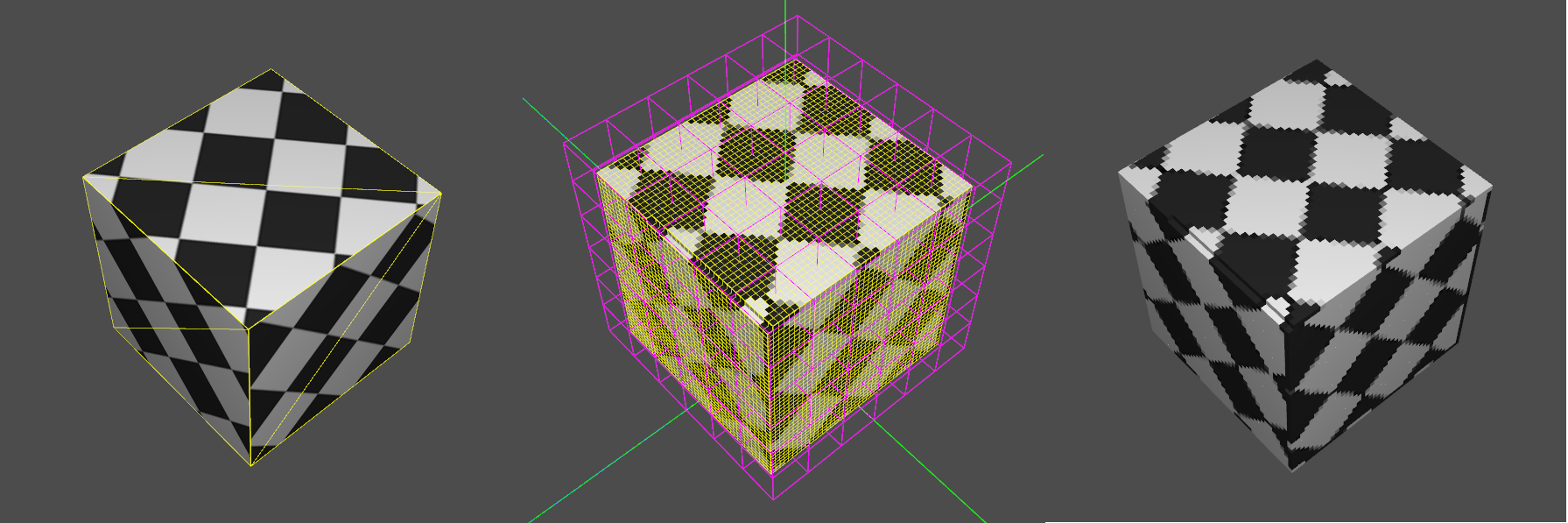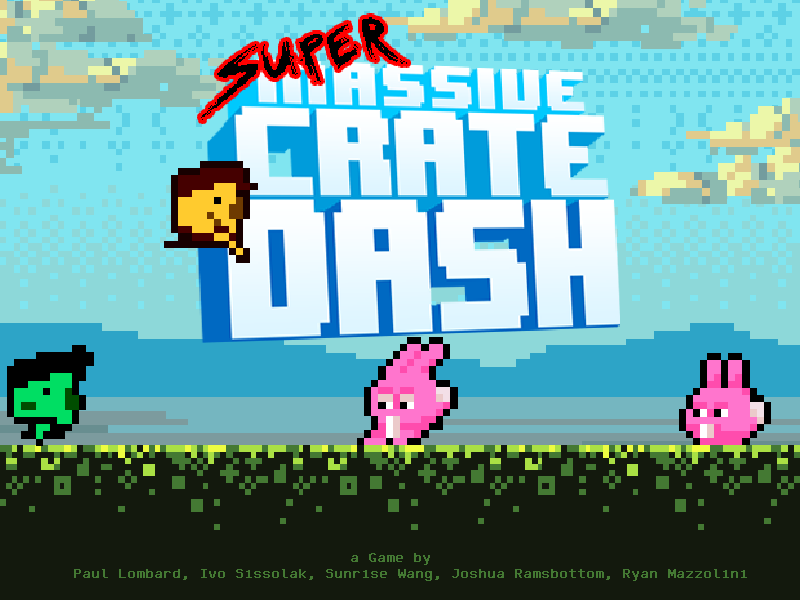The topic I chose for my Msc. is “procedural generation using voxels and cellular automata”. That’s computer science jargon for “using colourful virtual cubes and lots of rules to make the cubes do cool stuff”. However, the details of my research is not the topic of this blog-post. This blog post is about my experiences with the voxel (or volumetric element aka. 3D cube) library, OpenVDB.
OpenVDB is an open-source c++ library that manages voxels. When I started using the library it was early 2013. OpenVDB was not fully released, it had not been integrated into any other platforms and only a handful of people were using it. By 2015 things have changed drastically. OpenVDB has won awards, been integrated into many art tools and is even starting to be looked at by game developers. Things are looking good for OpenVDB.
Overall I think my experiences with the library are pretty good, and I am quite happy with what I have achieved with it. However, that did not come without its own trials for me. From poor response to my noob questions on their forums and my low c++ proficiency (coding in c++ and “knowing” c++ are two very different things I learnt), I struggled to get to grips with the library.
I think I made two mistakes here:
Firstly, learning to code well in c++ as well as learning the new c++11 standards is challenging. Learning this, while messing around with a complex templated library (while trying to figure out if you actually want to use it) is pretty daunting. It took me far longer to get to grips with than I thought it would.
Secondly, OpenVDB was new and there were/are not a hell of alot of people using it. Tie this with the fact that I wanted to use the library in ways it isn’t focused on, and I was kind of on my own. I had to learn how to extend the library to incorporate colour and texture maps, something the library would not magically do for me.
Looking back I think it might have been better to use my own data-structure to learn, and then switched over once I had figured out where or how my research was going. On the other hand, the little system I built is using a fantastic library which I have only scratched the surface of. I even started trying to help new noobs on the forums with things I went through.
Yes, I probably should have used a game engine and tools I am more familiar with, but there are two experiences I wouldn’t take back:
The first is a humbling experience. I came to terms with not being a rock-star programmer (I have my doubts they even exist).
Secondly, once I was humbled, I learned to enjoy programming for what I could make. Not how I made it.
Besides that cliché moral lesson, I think being thrown in the deep-end really helped me conquer my programming fears. I’m excited to sink my teeth into a new challenge!








